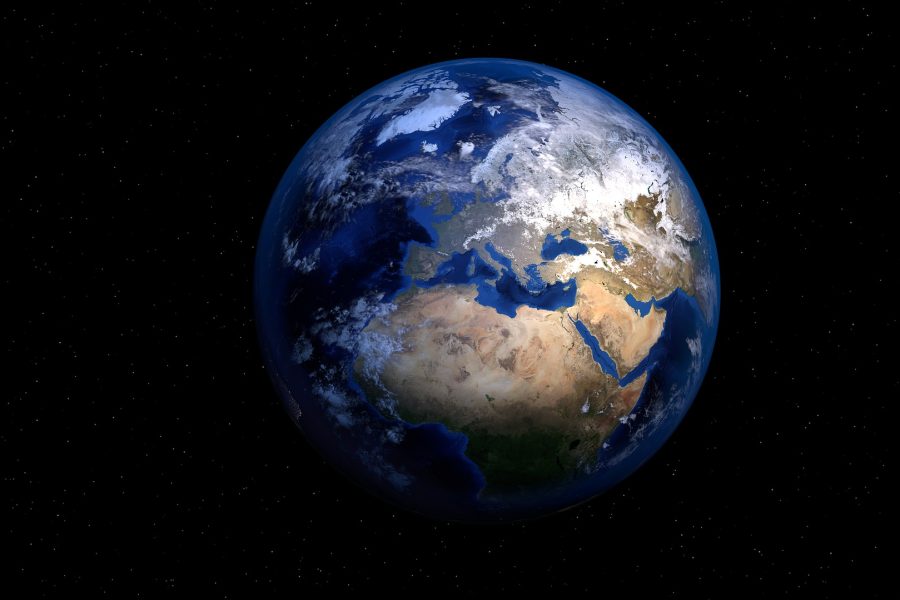Conspicuously missing from the Los Angeles mayor’s race, the Los Angeles Times “reported” last month, was an adequate focus on climate change. No surprise that the Times’ culture columnist and critic followed up by writing that “the only thing we should be talking about is the climate crisis.” Rather than comment on the absurd, let’s just go to the facts instead.
In her April 7 column, Mary McNamara insists that “doomsday being the moment when the ability to lower the atmospheric temperature has slipped from our control” is “by the latest estimates” less than a decade away. Need we mention she’s relying on “estimates,” not observable reality, and ringing an alarm that’s been screaming for more than 30 years?
Before the calendar had even turned to 1990, years before most of the country had heard of “global warming,” Noel Brown, then director of the United Nations’ New York Office of the Environment, claimed that “entire nations could be wiped off the face of the earth by rising sea levels if global warming is not reversed by the year 2000.” Since, a number of deadlines and “last chances” to save the world have come and gone throughout the 2000s and 2010s, with the world no worse off than it was two decades ago.
But the narrative demands that every harsh weather event, every convulsion of nature, and a host of human health problems is to be hung on climate change caused by man. And McNamara delivers. She tosses out a list of phenomena she and many others believe are caused by human greenhouse gas emissions. “The moment when we puny humans,” she says, “are finally and irrevocably at the mercy of hurricanes, fires, tornadoes, drought, food shortages, rising sea levels” is, according to “the latest estimates … less than 10 years away.”
Those estimates again. How about some reality? Wildfires, according to the U.S. Forest Service, burned more acreage every year from the late 1920s to the late 1940s, than from the late 1950s to the present. In the late ‘20s, fires burned more than four times as much as they have in the last two decades. Yet the political-media narrative says wildfires are growing worse.
The story is much the same with storms and other acts of nature.
“A century ago, almost half a million people died on average each year from storms, floods, droughts, wildfires and extreme temperatures. Over the next 10 decades, global annual deaths from these causes declined 96%, to 18,000. In 2020, they dropped to 14,000,” Bjorn Lomberg, president of the Copenhagen Consensus and a visiting fellow at the Hoover Institution, wrote last fall in the Wall Street Journal.
Yes, the dollar value of storm damages has increased, but it’s not a meaningful statistic, because, as Lomborg points out, “as the world has gotten richer and its population has grown, the number and quality of structures in the path of floods, fires, and hurricanes have risen.” When calculated “as a percent of gross domestic product,” there’s reason for optimism, he says. The data show that “weather-related damages from 1990 to 2020 declined from 0.26% of global GDP to 0.18%.”
It’s beyond wearisome to see yet again another news story, another opinion piece, another essay that implicitly declares as an unassailable truth that humans are wrecking their only planet by burning fossil fuels. It just is because they say it is, which is a style of arguing most of us gave up not long after grade school.
To close the loop, let’s return to McNamara’s contention that “the only thing we should be talking about is the climate crisis,” the seriousness of which she bases on estimates. This is nonsense. The rise in crime in California is not an estimate. The high burden of taxes in this state is not an estimate. The steep cost of living is not an estimate. Neither are prohibitive housing costs, the growing tragedy of homelessness, poverty, and the flight of residents and businesses estimates. These are real problems. And they should not only be talked about, but also solved.
But doing so would require red-state policies, which are unacceptable to the political-media complex in California, leaving climate to be “the only thing we should be talking about.”
Kerry Jackson is a fellow with the Center for California Reform at the Pacific Research Institute.


